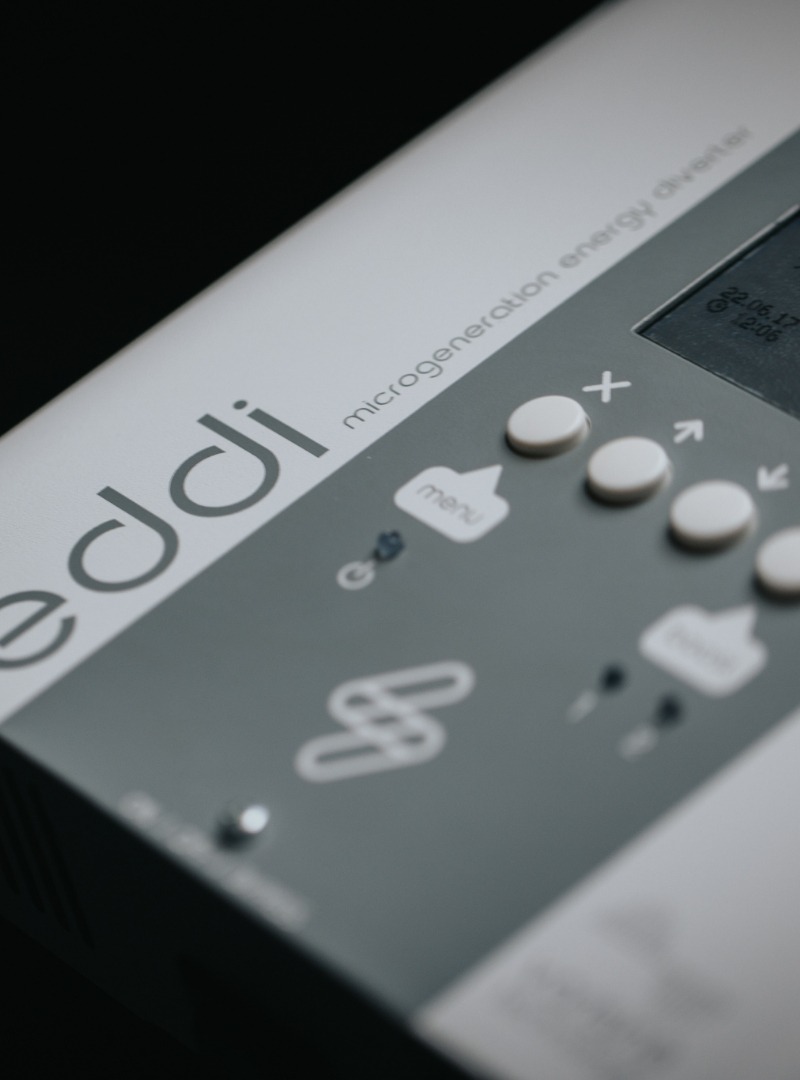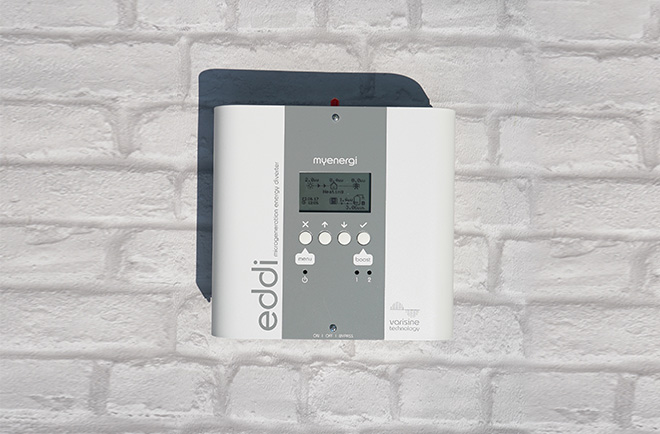Benefits of an Energy Diverter: Maximising the Use of Solar Power
Harnessing solar power has become a popular choice for many households and businesses in 2023. One essential component that maximises the utilisation of solar energy is an energy diverter. In this article, we will explore the benefits of an energy diverter and how it optimises the consumption of solar power.

What does an energy diverter do?
At its core, an energy diverter captures excess energy generated by a home renewable energy systems, such as photovoltaic (PV), wind, or hydro systems, and redirects it for local consumption instead of exporting it back to the grid. The most common use of an energy diverter is for water heating, although it can also be utilised for space heating and battery charging.
Why have an energy diverter?
The decision to install an energy diverter depends on various factors, including local regulations and the price difference between imported and exported energy. In Ireland, for example, the Feed-in Tariff (FIT) scheme incentivised the utilisation of self-generated electricity instead of exporting it back to the grid. Although the FIT scheme closed to new applications in 2019, existing participants will continue to receive the tariff payments for the agreed-upon term. Moreover, the Smart Export Guarantee (SEG) was introduced in 2020 to replace the FIT scheme. In locations where exporting electricity is forbidden or where tariff rates for imported and exported energy are the same, having an energy diverter becomes crucial to optimise on-site energy usage.

How does an energy diverter work?
An energy diverter operates by measuring the net energy flow at the grid connection point and controlling a load, typically a water heater, to maintain a balance where energy is neither imported nor exported. The control methods used by energy diverters include burst mode, phase control, and pulse width modulation. These methods involve switching the power to the load on and off at different rates, with burst mode being a popular choice among amateur constructors due to its simplicity and cost-effectiveness.
The benefits of an energy diverter
One of the significant benefits of an energy diverter is the maximisation of self-consumption of solar energy. Instead of allowing excess solar energy to be wasted or exported back to the grid at a lower price, an energy diverter diverts the surplus energy to auxiliary devices or systems within the premises. By prioritising the consumption of solar energy, homeowners and businesses can reduce their dependency on grid electricity and make the most of their self-generated power.
Reduced dependency on grid electricity
By utilising an energy diverter, property owners can significantly reduce their reliance on grid electricity. Excess solar energy that would otherwise be wasted or sold at a lower price can be redirected to power various loads, such as electric water heaters or immersion heaters. This allows for efficient use of solar power to meet the energy demands of the property, leading to decreased dependence on conventional electric heating methods and resulting in energy cost savings.
Financial savings
The financial benefits of using an energy diverter are twofold. Firstly, by consuming a higher proportion of self-generated solar energy, homeowners and businesses can minimise their electricity bills by reducing the amount of grid electricity they need to purchase. Secondly, through the optimization of on-site energy usage, the overall efficiency of the solar power installation is enhanced, resulting in long-term financial savings.
Increased efficiency of solar power installation
Integrating an energy diverter into a solar power system increases the overall efficiency of the installation. By diverting excess solar energy to designated loads instead of exporting it back to the grid, homeowners and businesses can maximise the utilisation of their self-generated power. This increased self-consumption contributes to a more sustainable and eco-friendly approach to energy consumption, reducing the carbon footprint associated with traditional grid electricity.

Maximise self-consumption
In conclusion, an energy diverter plays a crucial role in optimising the utilisation of solar power. By capturing and redirecting excess energy for local consumption, it maximises self-consumption, reduces dependency on grid electricity, and leads to financial savings. Additionally, it enhances the overall efficiency of solar power installations, promoting a greener and more sustainable energy ecosystem.

 libbi
libbi